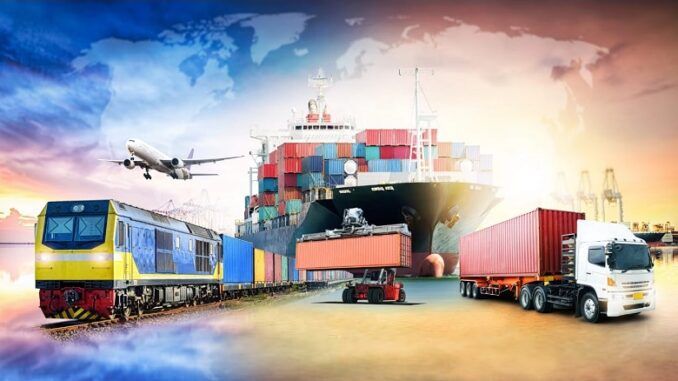
China has proposed a plan at the United Nations Global Sustainable Transport Forum 2024, aimed at enhancing global sustainable development within the transportation sector, emphasizing improvements in infrastructure and the stabilization of international logistics supply chains.
China’s Vice-Premier He Lifeng highlighted the importance of global transportation cooperation during the opening ceremony of the Global Sustainable Transport Forum, held in Beijing from Sept 25 to 26 in Beijing. China’s Ministry of Transport, the organizer of the summit. Vice-Premier He Lifeng addressed the challenges presented by geopolitical tensions, extreme weather, and aging infrastructure that threaten sustainable transportation initiatives.
The two-day forum, themed “Sustainable Transport: Logistics Connecting the World,” was organized by the Ministry of Transport and seeks to foster international collaboration in transportation. He reaffirmed China’s commitment to increasing investment in transportation infrastructure to stimulate economic growth, particularly in underdeveloped regions. The country expressed its intent to share its experiences in rural road development and to collaborate with other nations.
The forum featured a plenary session, a ministerial forum, and four thematic discussions. Key reports to be released during the event include the Global Vision for Sustainable Transportation, the China Sustainable Transport Development Report (2023), the Global Sustainable Transport Development Research Report (2023), and the Global Best Practices Initiative for Sustainable Transportation. He stated that reforms in the transportation sector would enhance the quality of China’s infrastructure and service capabilities, thereby providing more certainty and stability for international logistics supply chains. He expressed eagerness to learn from the experiences of other countries while sharing China’s reform practices.
The initiative for sustainable transportation has received recognition from international communities. Kim Young Tae, secretary-general of the International Transport Forum, remarked on the value of the forum for developing countries, emphasizing its potential for fostering meaningful engagement among diverse participants. He also noted improvements in Beijing’s air quality, attributing these changes to the Chinese government’s efforts towards decarbonization and better environmental conditions.
Abdul Aleem Khan, federal minister of Pakistan’s Communications, stressed the importance of enhancing connectivity between urban and rural areas, particularly in developing countries where inadequate rural roads can impede economic growth and contribute to inequality. He called for sustainable solutions that are reliable, affordable, and environmentally friendly.
Tanzania’s Minister of Transport, Makame Mnyaa Mbarawa, noted the longstanding cooperation between China and Tanzania, especially in transport infrastructure, citing ongoing railway projects involving Chinese companies.
This second iteration of the forum has garnered significant attention and produced positive outcomes. Li Xiaopeng, China’s minister of transport, articulated the aim of creating a platform to improve global transportation governance, promote sustainable cooperation, and facilitate the implementation of the United Nations 2030 Sustainable Development Goals. He welcomed more countries to collaborate and pool resources for advancing global sustainable transportation.
China’s transportation sector has made notable progress, with its high-speed rail network and freeway system extending to 45,000 kilometers and 184,000 kilometers, respectively, as of the end of last year. Additionally, China boasts 38 airports with annual passenger throughput exceeding 10 million.
Beyond domestic development, China has promoted global cooperation in sustainable transportation through various initiatives, including signing bilateral agreements on international road and air transportation and constructing railways abroad.
Li emphasized the importance of overcoming geographical barriers to foster global connectivity. He asserted that engagement with the international community is essential for achieving sustainable transportation goals and promoting a shared future for humanity.
The 2024 forum also showcased China’s innovations in sustainable transport through technical tours highlighting advancements in autonomous driving, smart logistics, rural and urban transport, international airports, rail transit, and automated ports.
The Global Sustainable Transport Forum 2023 was also held in Beijing in September last year.
Sources:
- Supply Chain Report, Sep 26, 2024. https://supplychainreport.org/china-proposes-sustainable/
- China Daily, Sep 26, 2024. https://global.chinadaily.com.cn/a/202409/26/WS66f4c293a310f1265a1c4efb.html